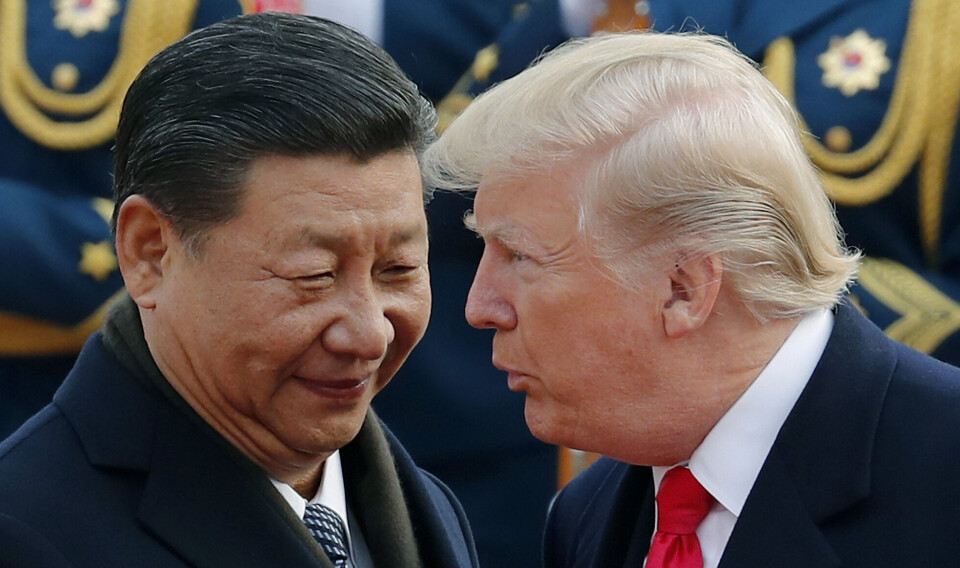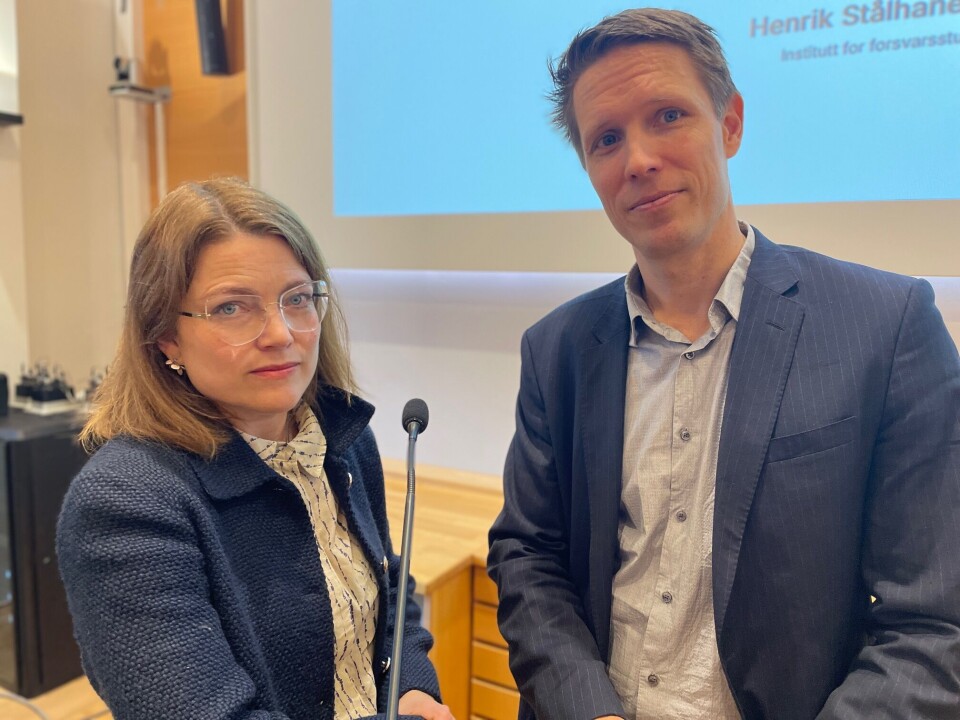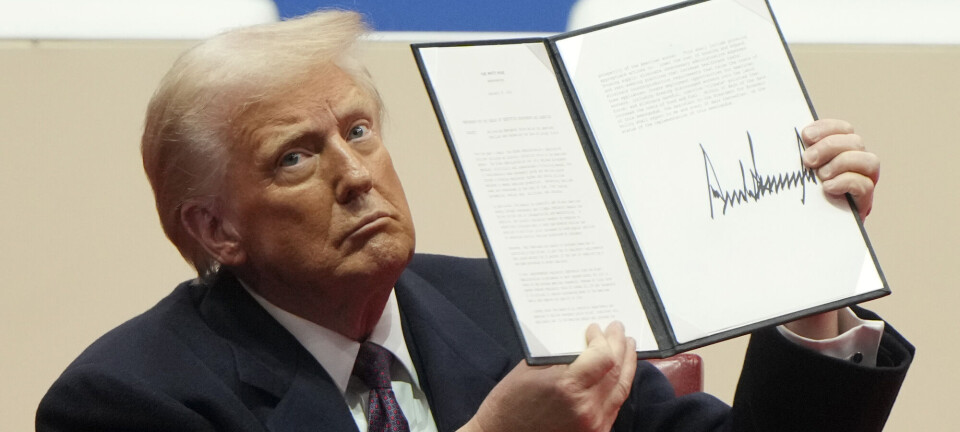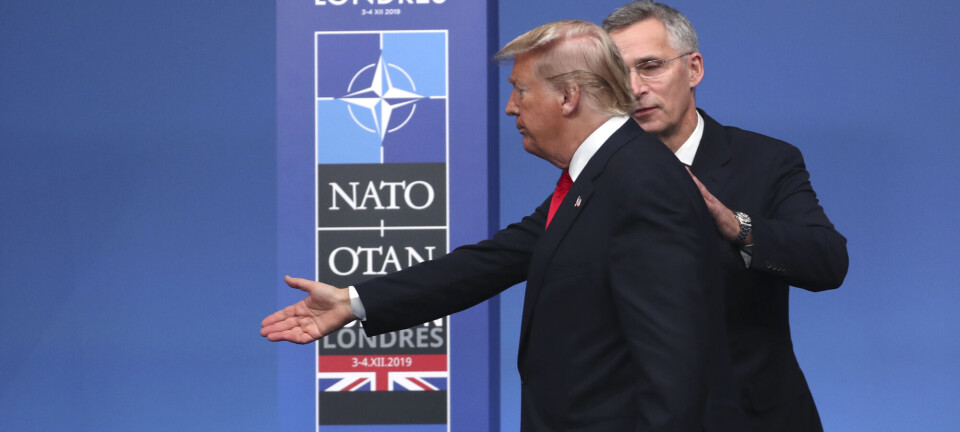Trump's unpredictable politics is good news for China, says defence expert
Chinese leaders have long been convinced that China's power is increasing and that the USA is in decline. The current developments in American politics will only strengthen their belief in this, argues Henrik Stålhane Hiim.

A trade war between two of the world's largest economies began this week.
The USA imposed a 10 per cent tariff on Chinese goods.
This was much lower than the 60 per cent Trump threatened during his election campaign, but the situation between the countries remains very tense.
China responded by imposing higher tariffs on a range of American goods.
Never thought of the world as friendly
China can endure this trade war, but they do not like it.
This was stated by Heide Østbø Haugen, Professor of China Studies at the University of Oslo, at a seminar in Oslo this week.
Their ability to withstand this is partly because the Chinese have never considered the world a friendly place, she believes.
"They have always believed they must not rely on individual countries or blocs for industrial supplies. China has built alternative supply chains with domestic suppliers or deliveries from various parts of the world," she says.

Want to avoid becoming vulnerable
Haugen believes that China's strategy for internationalisation is closely linked to its goal of building their nation by maintaining control over the entire supply chain.
They therefore want to avoid becoming highly vulnerable. At the same time, like people elsewhere in the world, Chinese citizens will experience slower growth as trade barriers rise.
"They have always thought they should disconnect their economy from the global economic system as much as possible. If they depend on minerals, for example, from the USA, they make sure to establish alternative supply chains," she says.
Some advantages too
Henrik Stålhane Hiim is a professor at the Norwegian Institute for Defence Studies. He believes that the punitive tariffs are challenging for China.
"The fact that China has been relatively restrained in its rhetoric may indicate that China has the most to lose in a trade conflict with the USA," he suggests.
Hiim also believes that this situation – and more broadly, Trump's unpredictable presidency – has significant advantages for China.
Not bad news
He points out that for years, Americans have tried to present a narrative that the USA is a defender of a rules-based international order, while China is the challenger.
That narrative is becoming harder to maintain now, argues Hiim.
"When Trump now goes so far as to threaten an ally with military force, as he has done with Denmark, this is not bad news from the perspective of Chinese leaders," he says.
Hiim believes that China has long sought to drive wedges into American alliances.
"Trump is now largely doing that job himself by threatening an ally with military force," he says.
Seeking new allies
In recent years, the USA has pushed for a coordinated approach to China policy across the Atlantic.
However, this effort is becoming increasingly difficult due to threats of punitive tariffs and military action, says Hiim.
"China will take advantage of this situation and seek stronger alliances with Europe and other parts of the world. I see that Chinese commentators are already calling for closer cooperation between Europe and China," he says.
China is also looking to expand its influence in the Global South, he explains.
"When the US cuts international aid, it creates gaps. We should not rule out the possibility that China will step in to fill these gaps," he says.
A shift in global power
The researcher at the Norwegian Institute for Defence Studies believes that a major shift in global power has already taken place – one that many have yet to fully recognise.
"China's GDP is ten times larger than Russia's. And that gap is widening," says Hiim.
Most viewed
This means that the rivalry between the USA and China will persist for many years to come.
However, discussions at the seminar also highlighted that China’s economy is under significant pressure.
The greatest threat
The greatest threat to Chinese growth is its declining population, says Heidi Østbø Haugen.
She believes Chinese authorities have not adequately prepared for the demographic shift now unfolding.
"Any demographer could shave predicted an increasing dependency ratio in China following the one-child policy. Yet, it took authorities a long time to reverse the policy," she says.
According to Haugen, this reflects a weakness in China's political system.
Concerns among the Chinese population
From an outside perspective, China's economy seems to be thriving, and there are valid reasons for this perception, says Haugen.
However, within China, the public sees things differently.
"People are worried about the economy, both now and in the future," she says.
Haugen explains that while Chinese citizens are not particularly concerned with politics, economic issues are a major concern.
"This is something they have in common with people in many other countries in the world, including the USA," she says.
———
Translated by Alette Bjordal Gjellesvik
Read the Norwegian version of this article on forskning.no
Related content:

Subscribe to our newsletter
The latest news from Science Norway, sent twice a week and completely free.





































